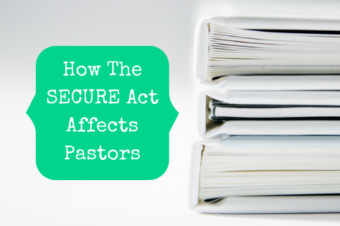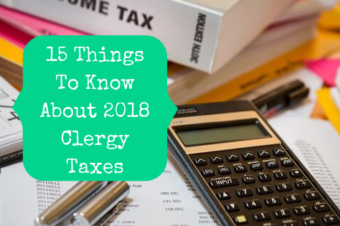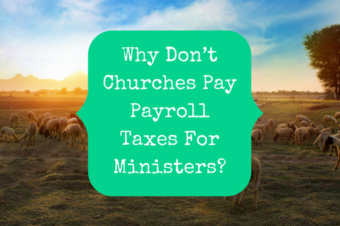Whether or not you believe that Joe Biden won the election, let’s set aside politics and talk about taxes. Because there’s no way I’m going to go there. I don’t care who you voted for or who you think will be president next year, today we are going to talk about Biden’s tax proposals. I should also remind you that US Presidents are not dictators and it is Congress that has to make the laws, so just because this is what Biden wants to do doesn’t mean it will actually happen.
Now that I have all of those disclaimers out of the way, let’s get to the fun part. Taxes. How does Joe Biden want to tweak the US tax code?
Changes That Might Affect You
The good news is that most of Biden’s tax increases will not affect the average American, at least directly. Of course, raising taxes on business can lead to increased prices, slower economic growth, lower wages, lower tithes, lower pay for pastors, etc. It’s all connected. However, most of the changes that would affect you directly would probably benefit you.
Child Tax Credit
The one that I think I would benefit the most from is the proposed increase in the child tax credit. Trump doubled it with the Tax Cuts & Jobs Act and Biden must have liked the response. He would like to increase it from $2,000 per child to $3,000 per child and also include a $600 bonus for children under 6. The tax credit would also be fully refundable, which would help pastors who have had their Child Tax Credit limited because of their housing allowance exemption.
Child & Dependent Care Tax Credit
Biden would also like to expand the Child and Dependent Care Tax Credit. The maximum would increase from $3,000 to $8,000 ($16,000 for multiple dependents) and the reimbursable amount would increase from 35% to 50%.
First Time Homebuyers’ Tax Credit
Another one for those earlier on in their adult lives (or pastors of any age moving out of a parsonage!) is the reinstatement of the First Time Homebuyers’ Tax Credit. This tax credit was born during the Great Recession in an attempt to combat the bursting of the housing bubble and help people buy homes, but it was only temporary. Not only does Biden want to bring it back, but he wants to increase it to $15,000. If this comes to pass, though, remember that there is no double-dipping. You can’t claim both a tax credit and a housing allowance for the same expenses!
Earned Income Tax Credit
For those on the other end of the spectrum, entering your golden years, Biden’s got something for you as well. The Earned Income Tax Credit is a reimbursable (they’ll refund you the money) tax credit for workers with low incomes. It’s the government’s way of trying to make up for the payroll taxes that lower-income earners pay. Right now, you can only claim the tax credit if you are under age 65 unless you have qualifying children. Biden’s proposal would open up the tax credit to those over age 65. I’ve heard from readers that this would definitely benefit and I’m sure they’re not the only ones.
Capital Gains Taxes
Up until this point, everything we’ve talked about would be beneficial to you. Not anymore. This one could affect your inheritance or your legacy. As you know, when you earn money, whether through work or investments, the government taxes it. When it comes to investments, you don’t pay the taxes until you sell them, even if they are growing every year.
Right now, if you have investments that have grown but you haven’t paid the taxes on them and you die, the tax liability dies with you. Your heirs do not have to pay the taxes on the growth from your lifetime. They only have to pay taxes on the gains the investment has earned since you died (the technical term is step-up in basis). Biden would like to eliminate that provision of the tax code so that heirs (or estates) would have to pay the taxes on all earnings. That means that if you receive an inheritance, some of it might end up going to the government and there would no longer be a tax benefit for you to hang on to your investments until you die.
Other Proposed Changes
There are a few other proposed changes that could affect you. He would like to expand the Obamacare premium tax credit. Biden would also like to create a refundable renter’s tax credit in an attempt to keep rent and utility payments at 30% of monthly income.
Changes To Retirement Contributions
This proposal is going to take a little bit more explanation, so I’m giving it its own section. Right now, if you make a contribution to a retirement plan that isn’t a Roth, you get a tax deduction for it. The amount of your contribution is subtracted from your income before you calculate your taxes due. That’s why it’s called a pre-tax retirement account. You don’t have to pay taxes on the money that you contribute (though you have to pay taxes when you take it out).
Biden would like to make some changes to the tax benefits of these retirement contributions that favor lower-income earners. Instead of allowing a tax deduction, he would like to have a matching refundable tax credit at a flat rate of 26%. The tax credit would be deposited into your retirement account instead of being issued directly to you.
Does that make any sense? I didn’t think so. Let’s see if an example will help.
Example
Let’s say you contribute $1,000 to a traditional IRA today. When you file your tax return, you can subtract that $1,000 from your taxable income. If you’re in the 12% tax bracket, that will save you $120 in taxes. If you’re in the 37% tax bracket, that will save you $370.
Under Biden’s plan, what would happen when you contribute that $1,000 to your traditional IRA? Instead of lowering your taxable income and therefore your tax bill, the government would make a contribution to your retirement account for you of $260 (26%). There are two things happening here. First of all, the benefit goes directly into your retirement account and not your hands, as it currently does. Second, it benefits those in lower income tax brackets more. The person in the 12% tax bracket now gets $260 instead of just saving $120. The person in the 37% tax bracket also only gets $260 instead of saving $370.
This proposal accomplishes two goals. First, it puts more money into retirement accounts, which is why the government offers these tax incentives in the first place. Second, it shifts the tax benefits more heavily towards low- and middle-income savers, which is their stated goal.
Changes For High-Income Earners
Most of Biden’s tax increases for individuals are aimed at those who earn over $400,000. If that’s you, congratulations on having a high income, and I’m sorry to say that you might have to share more of it with the government soon.
Right now, Social Security taxes are only paid on wages up to $137,700 (the cap adjusts annually with inflation). Any income above that amount is not subject to the Social Security tax of 6.2% for employees and 12.4% for self-employed individuals and pastors. (The Medicare tax, which brings a pastor’s total SECA tax to 15.3%, does not have a cap and is levied on all income.) Biden would like to reinstate that tax on income over $400,000. Under his plan, only income between $137,700 and $400,000 would escape Social Security taxation.
Biden would also like to raise the current top tax bracket. The Tax Cuts & Jobs Act lowered the top bracket from 39.6% to 37% and Biden would like to reverse that so that those with incomes over $400,000 are paying 39.6% again. It is important to remember that the Tax Cuts & Jobs Act individual tax bracket changes are temporary and due to expire after 2025. That means even if Biden makes no changes, the tax brackets will revert back to pre-Tax Cuts & Jobs Act levels for the 2026 tax year.
Other changes aimed at those who earn more than $400,000 are limiting itemized deductions and phasing out the qualified small business income deduction.
When you invest money for the long-term, you usually receive preferential tax rates on any gains that you achieve. The government does this to encourage investment and also help mitigate the diminishing purchasing power of money over time. One of Biden’s proposals is to eliminate the preferential tax rates for those earning $1 million or more.
Other Changes
Hang in there, we’re almost done here. Another Tax Cuts & Jobs Act change that Biden would like to undo is related to estate and gift taxes. Actually, he’d like to go even further back and restore those taxes and exemptions to the level they were at in 2009. This will only affect you if you have several million dollars when you die or are the beneficiary of someone that does.
Finally, Biden wants to raise taxes on businesses. I won’t go into it here, but for businesses, most of the proposed changes are not in their favor except for some select tax credits, such as those to encourage small businesses to sponsor retirement plans or bring manufacturing back to the US.
In conclusion, those are Biden’s tax proposals in a nutshell. For most of you, you’re probably happy because you mostly stand to benefit from them. I would like to issue a word of warning, though. Do you know how much money the government has spent fighting the coronavirus and the economic effects of the lockdowns this year? A lot. More than a lot. And I’m afraid we will be suffering the effects of it for years to come. Before doing a celebration dance, just remember that we will have to pay for it all one way or another, regardless of who is President.
To learn more about Biden’s proposals or help fight insomnia, read this article from the Tax Foundation.


















